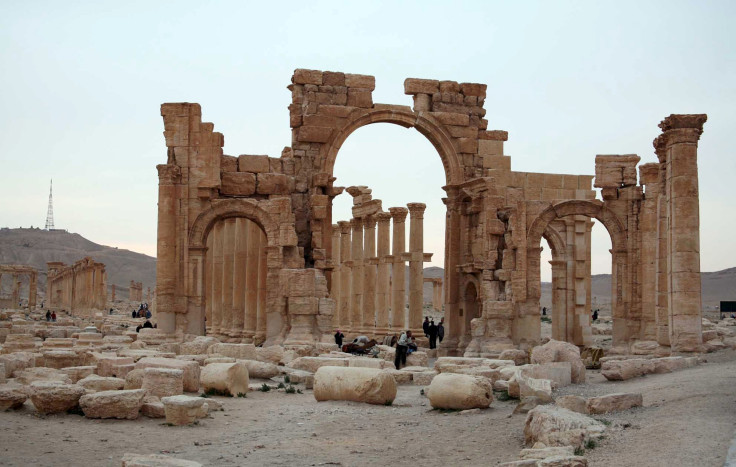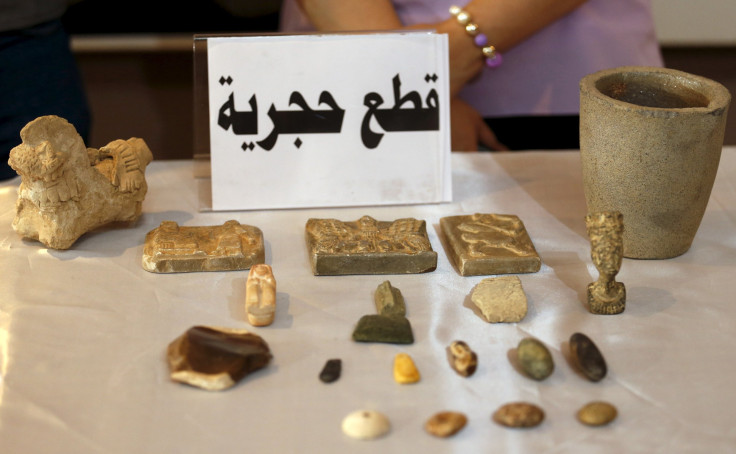ISIS Artifacts Trafficking: FBI Warns Art Dealers About Islamic State-Stolen Antiquities From Ancient Sites In Syria, Iraq

Art dealers and collectors can consider themselves officially warned: Artifacts and antiquities from the Middle East may have been stolen from ancient sites in Syria and Iraq by the Islamic State group, the FBI said in an alert issued Wednesday. Reports of the Islamic State group's involvement in looting such sites and selling plundered artifacts emerged as far back as a year ago.
“We now have credible reports that U.S. persons have been offered cultural property that appears to have been removed from Syria and Iraq recently,” Bonnie Magness-Gardiner, manager of the FBI’s Art Theft Program, said in a statement. The stolen pieces range from coins and pottery to stones, jewelry and bowls, and are laid out in detail in a Red List by the U.S. Bureau of Educational and Cultural Affairs.
The alert came just days after the Islamic State group -- also known as ISIS or ISIL -- said it destroyed the Temple of Baal in Palmyra, Syria, a Unesco World Heritage site dating back millennia. Militants also have destroyed other artifacts and statues from the site.
In September 2014, an op-ed in the New York Times detailed how the Islamic State group actively permits the looting of archeological sites by locals, provided the group earns a percentage of the value of pieces found and sold. The group claims its skimming of such profits is legitimate because of the Islamic "khums" tax, which mandates that a portion of the value of goods taken from the ground, including buried treasure, should go to the state, the Times article explained.
"For a few areas, such as the ancient sites along the Euphrates River, ISIS leaders have encouraged digging by semiprofessional field crews," the article said. They also encourage exporting these artifacts on the black market and across borders. This system "provides ISIS with one of its many diversified income streams," it added.

This week's FBI alert cited "reports from credible sources who have been approached by individuals trying to sell objects that appear to have been illegally looted and trafficked from Syria or Iraq, likely by those associated with the Islamic State in Iraq and the Levant (ISIL) terrorist group. The FBI is asking for help in preventing illicitly obtained art and antiquities from reaching the market and in preventing any transfer of funds from benefiting ISIL."
The warning also asked leaders in the art market to warn clients and others that when they buy antiquities from the Middle East, not only might these objects have been illegally obtained, but their purchase could constitute "financial support to a terrorist organization." As a result, an unsuspecting buyer or purveyor of Near Eastern Art could potentially be prosecuted for the crime of supporting a terrorist group.
“Check and verify provenance, importation, and other documents,” Magness-Gardiner said. “What we’re trying to say is, don’t allow these pieces that could potentially support terrorism to be part of the trade.”
© Copyright IBTimes 2024. All rights reserved.












